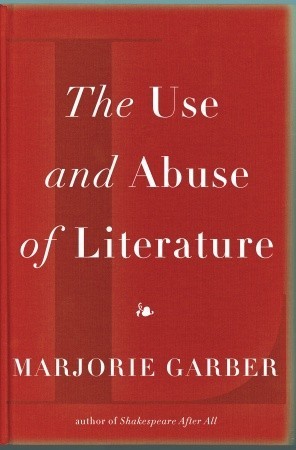What do you think?
Rate this book


320 pages, Hardcover
First published January 1, 2011
...the meanings of literature as a term have, perhaps paradoxically moved both "up”and “down”in recent years. On the one hand it now seems to denote a particular reading, writing, and publishing practice associated with middle to high culture, with the notion of a literary canon, and with English majors; on the other hand, it has been co-opted -or universalized- so that it means just about anything professional – or research-based- written in words.She argues, that in the book, she is interested in literature
...not as an instrument of moral or cultural control, nor yet as an infusion of “pleasure,” but rather as a way of thinkingThus she eschews the use of literature to make its readers happier, more ethical, more articulate, better citizens, better companions or lovers, better businesspersons or professionals, more well-rounded, better able to hold their own in social conversations. In this introduction Garber thus addresses what possible uses have been put forward for literature ...and discards most of them:
Central to this book is the question of how we can understand the importance of “what was once called Literature”and how we can distinguish it from other distinct, though valuable, human enterprises like morality, politics, and aesthetics. My purpose and my goal are to explain the specificity of literature and literary reading.Garber winds the introduction to a close by claiming:
As we have already noted, poems and novels do not have answers that are immutably true; they do not themselves constitute a realm of knowledge production. Instead, they raise questions, they provoke thought, they produce ideas and generate arguments, they give rise to more poems and more novels.Curiously, it is worth pointing out that substituting science -or theology- for poems and novels in the second sentence of the previous quotation provides as true a sentence -and as for the claim that poems and novels do not themselves constitute a realm of knowledge production is moot indeed... Yet Garben insists that:
We do literature a real disservice if we reduce it to knowledge or to use [sic] to a problem to be solve.and closes the chapter abruptly, more with a rhetorical flourish than persuasively, by revelling in that
...the happy resistance of the text to ever be fully known and mastered -is one of the most exhilarating products of human culture-incidentally, just as exhilarating as the resistance of nature to science or God to theology...
...is a counter in a discourse about a discipline at a turning point...In literature -and books, and reading-, the author does not convincingly develop the notion of their abuse but rather their misuse. The chapter includes a brief overview of twentieth century schools of literary criticism.
For literature is a status rather than a quality. To say that a text or a body of work is literature means that ut is regarded, studied, read, and analyzed in a literary way.Chapter four, with its droll title, What's love got to do with it is a lively, tongue-in-cheek essay on how appropriate -or not- it is for the literature critic -or a student or fan- to rely on a claim to “love” literature. As Garber quickly and cheekily points out:
Love is not a critical stance; it does not necessarily welcome interpretations, especially multiple interpretations. What Freud accurately called 'the overestimation of the object' – the idea that the loved one is imbued with extra value, with superlatives, even with perfection, as a way of ensuring that the lover stays in love -is sometimes a way of avoiding analysis and critique rather than pursuing them.Garber looks into the historical role of reading aloud for pleasure in society and in courtship, as well as the role book clubs, reading groups and extension courses on literary appreciation currently play. She then digresses into the the state of English studies and the professional or amateur status of warring literary critics. The author finally comes to the supposedly central issue of the chapter:
What's love got to do with the abuse and use of literature? For one thing, love -as news stories remind us every day, and as classic novels, poems and plays have told us for centuries, is often about use and abuse. And as with literature, it is sometimes not easy to tell the difference.The chapter continues with extensive quotations and analysis from some outstanding essays from Virginia Woolf's The Common Reader and Samuel Johnson's Lives of the Poets which allow a closer look at what loving literature can mean.